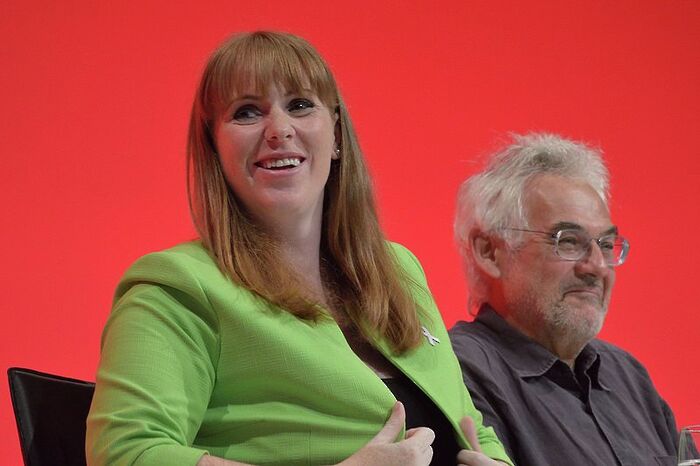Hammond’s pledge to the young won’t amount to much
The Chancellor has asked for help in making sure the Autumn Budget helps young people. But it’s unlikely there’ll be any change in the Tories’ neglect of the younger generations in favour of the older

Earlier this month, Chancellor of the Exchequer Philip Hammond reached out to MPs, calling for suggestions for policies that could be implemented into the upcoming Autumn Budget, which would purportedly help young people financially. In doing so, Hammond has highlighted a recognition by the government of a problem that many of us have known for a while to be true, as well as a fresh reminder of just how weak the Conservatives’ hold on government is.
Many young people start out life in varying degrees of poverty. If we leave school and go straight into the world of work, the jobs we are equipped for are limited and usually low-paid. Those who go to university may be able to access higher-paid jobs throughout their lives, but we do so saddled with debt and only after working our way through our fair share of ‘experience’ and unpaid work. For those who go where the job is, economic centres such as London are expensive to live in, even for those with built-up savings, leaving little change in our pockets at the end of the month. Therefore, Hammond’s request seems on the outset to be a government functioning as it should, recognising a problem and finding ways to solve it.
“Rather than taking too much funding from their other endeavours, the Tories will want any policy to be as cheap as it is impactful.”
But what seems obviously fishy is that it is the Tories asking for such solutions and, more importantly, after such a massive backfire of an election. After all, these are the people who, in the previous two governments, have tripled tuition fees, scrapped maintenance grants and, through a series of reforms, made secondary school examinations far harder than ever before. Given this ideological background, they don’t seem to be friends of the young and underfunded. But, then again, they have never needed to be before.
Traditionally, the Tories appeal to an older electorate – 69% of over 70s voted Tory at the last election, whereas 66% of 18–19 year olds voted for Corbyn – and so they tend to be willing to tailor their policies to appeal to the older voter; the triple lock on pensions stands testament to this. To pay for such policies, they cut budgets targeted at those that are unlikely to win them an election.
However, with youth voter turnout up (64% among 18-24 year olds at the last election, the highest in 25 years) and the Tory’s majority diminished, appealing to younger voters as much as possible may be one of the few ways of Hammond holding onto any power as Chancellor beyond next year. Showing that he can actually enact into law some of the policies that galvanised so many young voters for Labour, such as a greater amount of affordable housing and improving careers advice, may bank Hammond some political brownie points in the event of another snap election or brutal reshuffle. The move may be a minor U-turn on the Tories’ anti-young person policies, but a calculated one nonetheless.
Surely we should all be thankful, then, that the Conservatives are willing to try and aid young people’s interests, even if what lies behind it is entirely politically motivated? After all, this is the government the people voted for: one of the most representative ones we have seen in a long time. One where the government does not have a monopoly on all decisions, and can be stopped by the opposition if they are being too harsh. Softening their stance on certain things is merely an acknowledgment that they have to serve everyone with their policies now, not just those who voted them in.
Whilst we may see some gain out of the government’s recent change of heart, the quality of policy directed at us may serve to be questionable. As a political manoeuvre, Hammond won’t want policies that conflict too much with the direction of the party, but instead will want ones that look superficially enticing to young voters and will be as cost-beneficial as possible. Rather than taking too much funding from their other endeavours, the Tories will want any policy to be as cheap as it is impactful. After the massive overspend that was David Cameron’s National Citizenship Service, which brought him very few more votes in the 2015 election, I fear the policies directed towards the young, should there be any, will be entirely style over substance
 News / Caius mourns its tree-mendous loss23 December 2025
News / Caius mourns its tree-mendous loss23 December 2025 Comment / Yes, I’m brown – but I have more important things to say22 December 2025
Comment / Yes, I’m brown – but I have more important things to say22 December 2025 News / Clare Hall spent over £500k opposing busway 24 December 2025
News / Clare Hall spent over £500k opposing busway 24 December 2025 Interviews / Politics, your own way: Tilly Middlehurst on speaking out21 December 2025
Interviews / Politics, your own way: Tilly Middlehurst on speaking out21 December 2025 News / King appoints Peterhouse chaplain to Westminster Abbey22 December 2025
News / King appoints Peterhouse chaplain to Westminster Abbey22 December 2025









